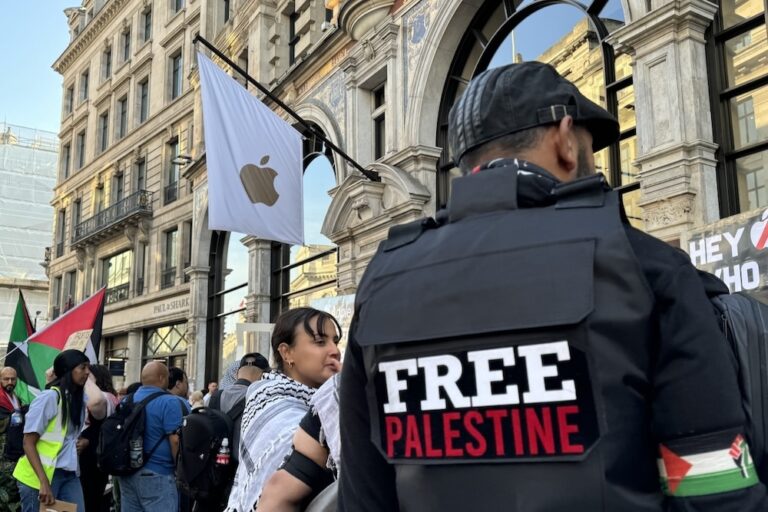(WAN/IFEX) – On 2 April 1998, the President of the World Association of Newspapers appealed to the world’s culture ministers to tear down the obstacles to free expression. “Some of the greatest obstacles to development, some of the greatest obstacles to the growth of the culture which could accelerate that development, and indeed human progress […]
(WAN/IFEX) – On 2 April 1998, the President of the World Association of
Newspapers appealed to the world’s culture ministers to tear down the
obstacles to free expression.
“Some of the greatest obstacles to development, some of the greatest
obstacles to the growth of the culture which could accelerate that
development, and indeed human progress as a whole, are erected and
maintained in place by scores of governments represented in this hall”, WAN
President Jayme Sirotsky told the UNESCO Inter-governmental Conference on
Cultural Policies for Development taking place in Stockholm, Sweden.
Mr Sirotsky reminded the conference that no less than 119 countries today
practice censorship and other forms of repression of freedom of expression.
Some 138 journalists were in prison around the world, he said, together with
countless poets, artists and writers.
“Where a free press is suppressed, all other forms of major cultural
expression are the victims of similar persecution.”
Mr Sirotsky, who was speaking to cultural ministers and delegations from
some 150 countries appealed for the release of all journalists in detention.
He specifically called on the government of China to release Gao Yu, who is
serving a six-year sentence; the government of Nigeria to free Christina
Anyanwu, sentenced to 15 years; the government of Vietnam to release Doan
Viet Hoat, who has been held for 19 years and must serve a further 7 years;
and the government of Cameroon to free Pius Njawe, who is serving 2 years.
Mr Sirotsky, Chairman of the Board of RBS, the biggest media and
communications company in southern Brazil, pointed out the theme of the
UNESCO meeting was “The Power of Culture” and added: “If only four
governments – and I could have selected many others – could find the will to
extend clemency to our beleaguered, imprisoned colleagues, then I believe
that the contribution of the World Association of Newspapers to the theme of
this conference will not have been in vain.”
Mr Sirotsky also told the conference: “The World Association of Newspapers
believes that far too little attention is given to the link between
development and the existence of a strong, free and independent press.”
“We have embarked on a campaign to persuade international institutions, and
indeed individual governments, that they can do no better to protect their
investments or ensure that development aid is not wasted than to help
finance the kind of programmes we implement to give durable life to
independent media,” he said.
WAN, the global association of the newspapers industry which groups some
15,000 newspapers world-wide, had participated in the UNESCO meeting by
holding a freedom of expression conference on 31 March 1998, entitled “No
Freedom…No Culture.”
It brought together writers, artists, journalists, a film-maker and a
musician who had been banned, beaten, imprisoned and exiled to discuss their
common experiences and to call for an end to cultural repression.
“Freedom of expression and the culture to which it gives birth are
absolutely fundamental to stable political, economic and social progress”,
Mr Sirotsky told the culture ministers on Thursday.
The full text of Jayme Sirotsky’s speech and more information about “No
Freedom…No Culture” can be found on WAN’s website at www.fiej.org.


